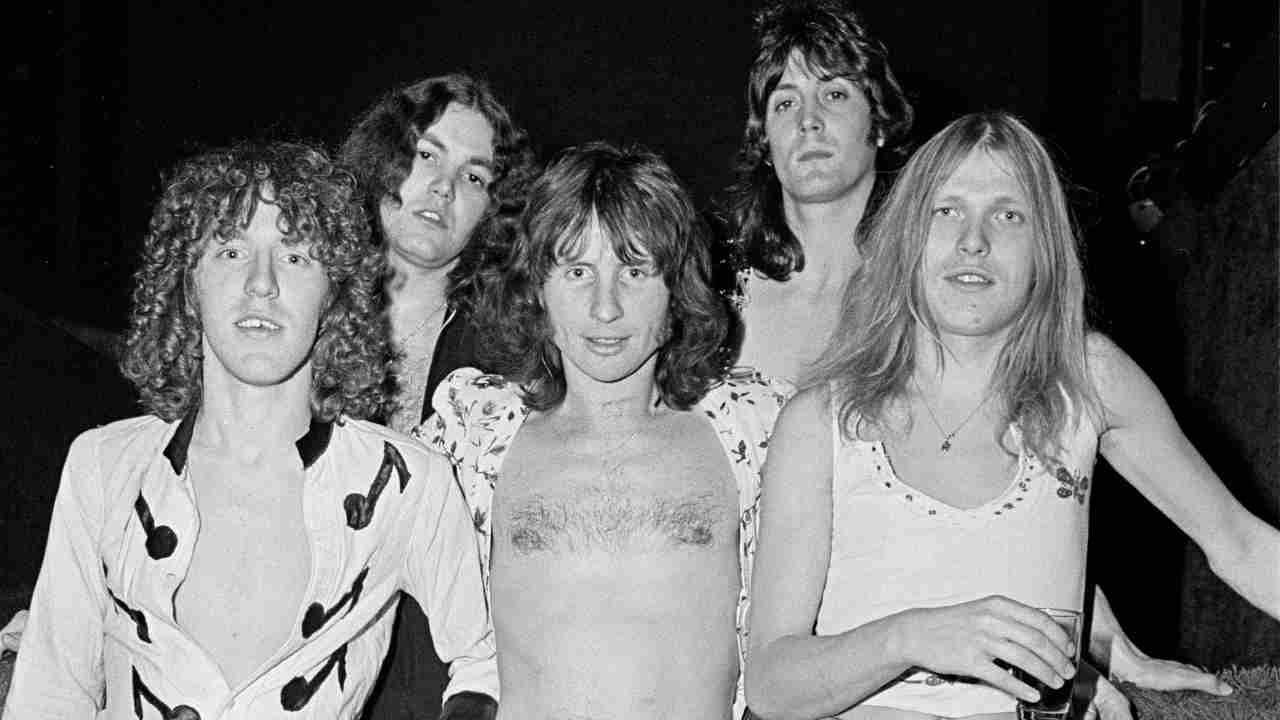“When the Boogie Nights scene came on, I said, ‘Man, I think I’ve been in that guy’s house in the early 80s!’”: the rise, fall and porn-assisted resurrection of AOR heroes Night Ranger
Power ballads, bust-ups and Boogie Nights – this is the epic story of Night Ranger
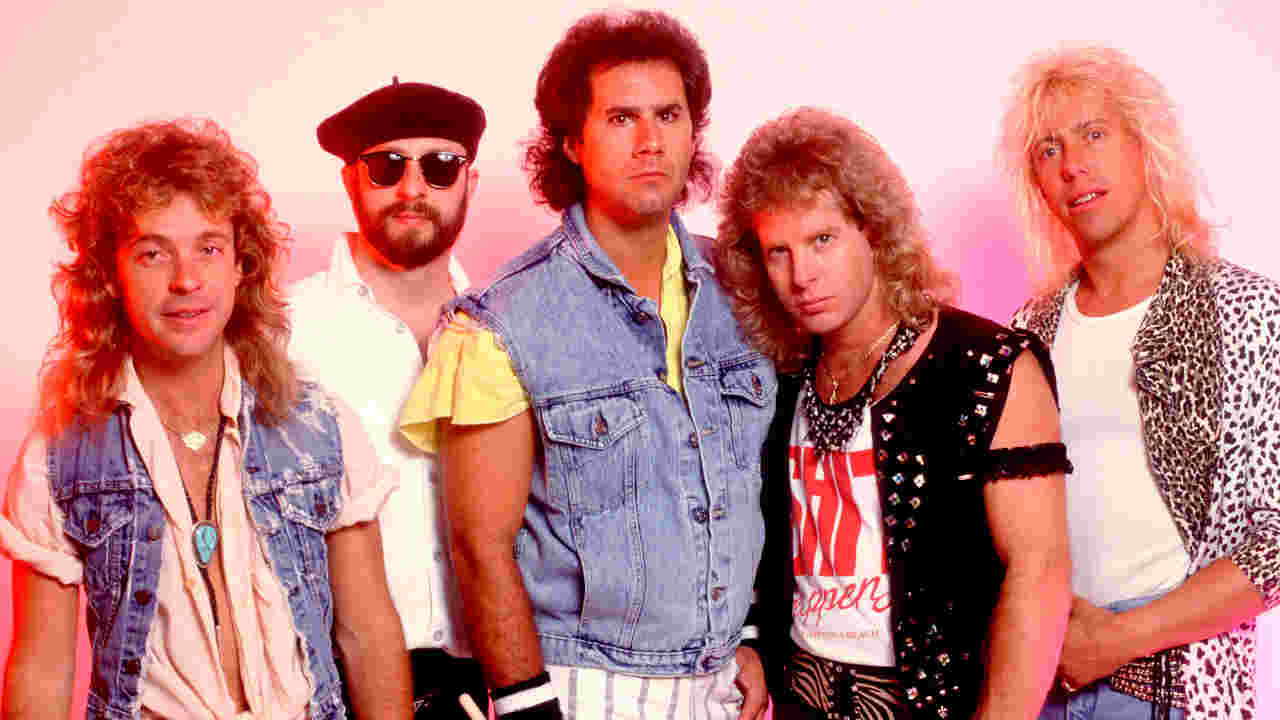
Select the newsletters you’d like to receive. Then, add your email to sign up.
You are now subscribed
Your newsletter sign-up was successful
Want to add more newsletters?

Every Friday
Louder
Louder’s weekly newsletter is jam-packed with the team’s personal highlights from the last seven days, including features, breaking news, reviews and tons of juicy exclusives from the world of alternative music.

Every Friday
Classic Rock
The Classic Rock newsletter is an essential read for the discerning rock fan. Every week we bring you the news, reviews and the very best features and interviews from our extensive archive. Written by rock fans for rock fans.

Every Friday
Metal Hammer
For the last four decades Metal Hammer has been the world’s greatest metal magazine. Created by metalheads for metalheads, ‘Hammer takes you behind the scenes, closer to the action, and nearer to the bands that you love the most.

Every Friday
Prog
The Prog newsletter brings you the very best of Prog Magazine and our website, every Friday. We'll deliver you the very latest news from the Prog universe, informative features and archive material from Prog’s impressive vault.
In Paul Thomas Anderson’s brilliant 1997 cinematic depiction of the porn movie industry, Boogie Nights, there is a famous scene involving a semi-naked drug dealer with a penchant for AOR. And for Night Ranger’s Jack Blades, it is all too real.
The scene is set in the mid-80s, at the LA home of drug baron Rahad Jackson. Seated before him are three anxious men, led by Dirk Diggler, whose enormous penis and superhuman stamina had made him a leading porn star in the 70s. Desperate for money, the three are attempting to rip-off Jackson by tricking him into buying a huge quantity of baking soda disguised as cocaine. But Jackson – clad only in an open shirt and underpants, and clearly high on his own supply – is in no hurry to conclude the deal.
As Diggler and his associates squirm in their seats, trying to conceal their rising panic, Jackson delights in entertaining them with a mix-tape of his favourite songs: Jessie’s Girl by Rick Springfield, 99 Red Balloons by Nena, and Sister Christian by Night Ranger.
When Sister Christian plays, Jackson becomes lost in the music, wildly air-drumming before yelling out the hook-line: ‘You’re motorin’!’ And it’s this precise moment that gives Jack Blades a powerful sense of déjà vu…
“I saw Boogie Nights when it came out, with my wife Molly,” he says. “And when this particularly scene came around, sweat broke out on our foreheads! We looked at each other and I said: ‘Man, I think I’ve been in that guy’s house back in the early 80s!’”
Not every detail in this scene corresponds to Blades’ own experiences: unlike Dirk Diggler, he never wound up staring down the barrel of a shotgun. But he admits: “Staying up all night at the drug dealer’s house… oh boy, we lived that!”
Such was the life of Jack Blades in the 1980s when Night Ranger, the band he co-founded at the beginning of that decade, became one of the most popular hard rock acts in America. Through the 80s, Night Ranger sold over 10 million albums. They cut three of the greatest AOR albums of that era: Dawn Patrol, Midnight Madness and 7 Wishes. And with Sister Christian, a Top Five US hit in the summer of ’84, they created one of the all-time classic power ballads.
Sign up below to get the latest from Classic Rock, plus exclusive special offers, direct to your inbox!
But all this might never have happened if Night Ranger hadn’t fought tooth and nail from the very beginning. At their earliest shows, audiences laughed at them. After signing a record deal, one of their guitarists was tempted away by Ozzy Osbourne. When they were releasing their first album, they were forced to change the band’s name. And in the middle of their first major tour, their record company went bust. Lesser bands might have given up. But as Jack Blades says: “Sometimes, you’ve just gotta go out there and kick ass!”
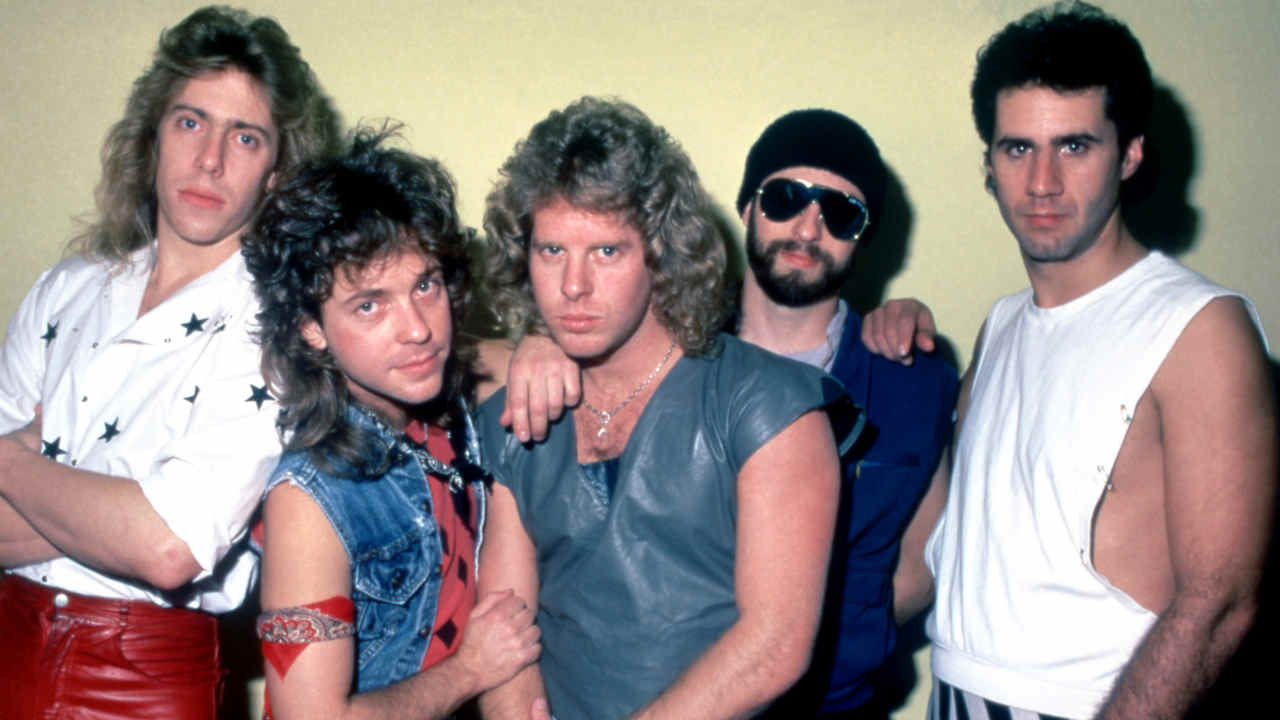
It was in early 1980, in San Francisco, that the band formed under its original name of Ranger. The catalyst was the break-up of Rubicon, a Bay Area group led by former Sly & The Family Stone saxophone player Jerry Martini. Jack Blades, born in Palm Desert, California, had joined Rubicon as bassist in 1976, a year after leaving college in San Diego. When Martini pulled the plug on Rubicon in late ’79, Blades took two members of that band with him, guitarist Brad Gillis and touring drummer Kelly Keagy, to form the trio Stereo. And when Stereo expanded to four and then five members, Blades didn’t have to look far. “My roommate at the time was Alan Fitzgerald, who played keyboards for Sammy Hagar. He brought in another guitar player he knew, a young kid from Sacramento, Jeff Watson.”
The band was subsequently renamed Ranger. And from the start, it was evident that this was not a conventional rock’n’roll outfit. “We didn’t have a frontman per se, like Aerosmith or Led Zeppelin,” Blades says. “We had a singing bass player and a singing drummer, plus two lead guitar players and a keyboard player.” In addition, the band’s influences spread far and wide. “We loved that British sound – Zeppelin, Deep Purple, Cream – and of course Thin Lizzy with that twin-guitar attack. But our sound was distinctly American, because that’s who we are. And we loved the great American rock bands, Van Halen and Journey. Journey were very melodic, and that had an influence on where we wanted to go.”
When Ranger began gigging in the Bay Area, it was their classic rock sensibility that audiences picked up on, often with outright hostility. “In America in 1980 it was all new wave, Blondie, The Cars,” Blades recalls, “and people were making fun of us because we were a rock band. They were yelling out insults like: ‘1975! Deep Purple!’ But we took it as a compliment!” Undeterred, Ranger built up a strong local following and in early 1982 they signed to Boardwalk Records. But as they set to work on their debut album, Gillis announced he was joining Ozzy Osbourne’s band as replacement for Randy Rhoads, the brilliant guitarist who died in a plane crash on March 19, 1982.
“We were all wondering if Brad would return,” Blades admits. “He always said he’d come back. But one night there was a live radio broadcast from the Ozzy tour, Kelly Keagy came over to my house to listen to it, and Brad sounded so good, we looked at each other and said: ‘He’s never coming back!’ It was a weird time for us. In fact, Ozzy and Sharon came to visit us in the studio while we were recording, and Ozzy had shaved his head for a joke, which freaked everybody out!”
Despite these distractions, Ranger and Gillis remained focused on the album. “We just got in the studio and fired up and went for it,” Blades says. “There was a lot of excitement in us, a lot of pent-up energy, and I think it really shows on that record.” And although Gillis kept working with Ozzy for much of that year – recording the live album Speak Of The Devil in New York in late September – he rejoined Ranger on a permanent basis in time for the release of the band’s debut in October. According to Blades, “Brad missed his buddies, and Ozzy understood that.”
However, before the album could be released, the band’s name had to be altered following a legal challenge from a country act named The Rangers. As Blades explains: “They’d had the name forever – their grandfathers started the band right after the American Civil War!” Blades’ first thought was: “We’re screwed.” But the solution was simple. “I’d written a song on the album called Night Ranger, so we went with that.”
The album, titled Dawn Patrol, was quite simply one of the best hard rock debuts since Van Halen’s. “It was very much a full-on kick-ass American rock record,” Blades says proudly. The opening track, Don’t Tell Me You Love Me, became what Blades calls the “signature” of the newly christened Night Ranger: powerful and ultra-melodic, like a heavier Journey, with added Lizzy-inspired leads and harmonies from Gillis and Watson. “When we cut that song,” he recalls, “we said, wow, that’s the one we want people to know Night Ranger for.”
But there were great songs throughout the album, from Sing Me Away to the tumultuous Eddie’s Comin’ Out Tonight. And despite the ‘Deep Purple’ jibes the band had suffered earlier, Dawn Patrol also had a modern feel – enhanced by Fitzgerald’s keyboard parts – that echoed the new wave-influenced hard rock of Loverboy.
Their timing was perfect. “The record was released right at the time when MTV was starting out,” Blades reflects. “We shot a video for Don’t Tell Me You Love Me and MTV was playing it, like, 14 times a day. With Night Ranger being new, and having that rock attitude and the guitars blazing, it was a nice break from, you know, Duran Duran. We fit right in there with Van Halen and Def Leppard, and right off the bat, Dawn Patrol was a big success. We sold a million. And right then, in the middle of a tour, our record company went bankrupt! And they owed us all that money on a million records!”
It was a devastating setback, but disaster was averted when major label MCA offered the band a new deal with a guarantee on royalties from Dawn Patrol. Moreover, MCA pushed Night Ranger to record a second album immediately to capitalise on the popularity of the first, and it was a strategy that led the band to its greatest success.
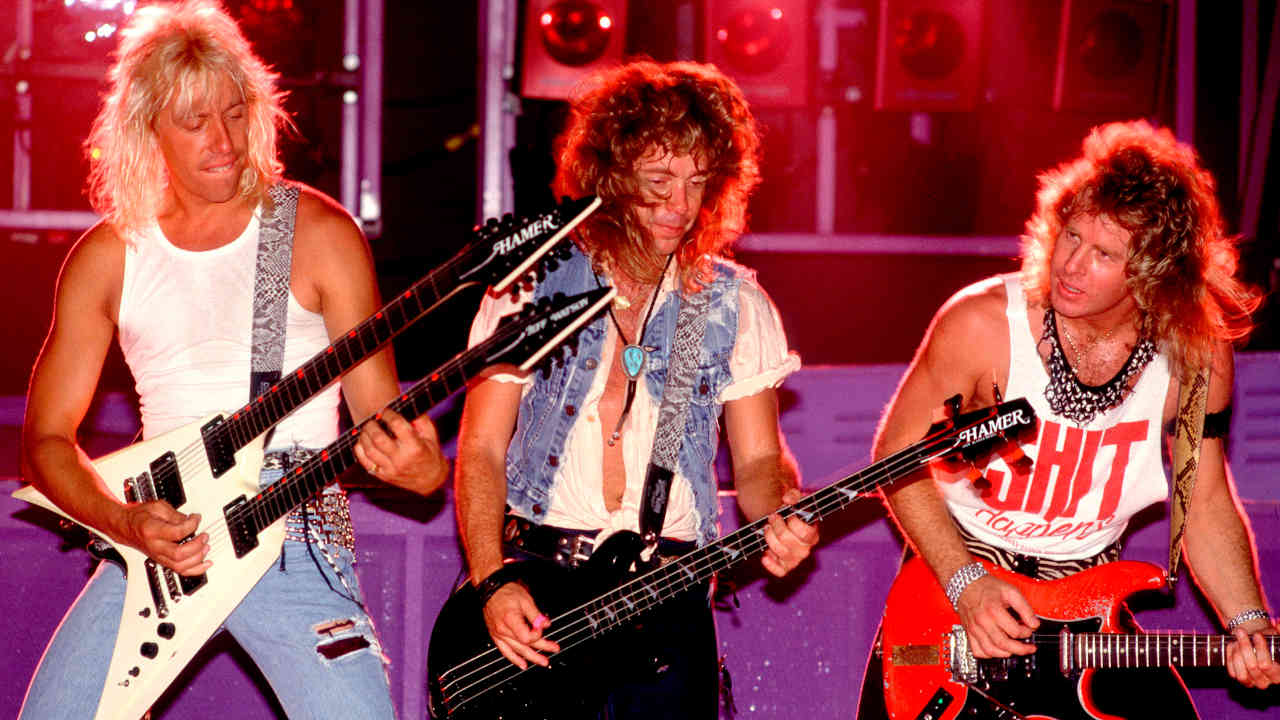
Many rock bands have suffered from ‘Difficult Second Album Syndrome’. As Jack Blades says: “For your first album you have all your good songs lined up, but for your second album you pretty much have nothing.” But when Night Ranger came to record the Midnight Madness album in 1983, they had most of the material already written, including the two songs that would effectively define their entire career.
It was during the Dawn Patrol tour, in a hotel room in Springfield, Illinois, that Blades wrote the anthem that would begin Midnight Madness: a call-to-arms entitled (You Can Still) Rock In America. Blades insists this was not a political song, despite its Cold War sensibility. Nor was it in any way tongue-in-cheek.
“Quite the opposite!” he exclaims. “I wrote it from the heart. All these magazines were saying that rock is dead, but everywhere we played, people just wanted to rock. I didn’t know what these magazines were talking about, so I said it out loud: You Can Still Rock In America!”
This message, emphatically stated with some serious shredding from Gillis and Watson, made the song a nailed-on crowd-pleaser. But the biggest song on Midnight Madness – the biggest song in Night Ranger’s whole catalogue – is of course Sister Christian, written by Kelly Keagy in 1981 but held back for two years. Says Blades: “Kelly wrote the song about his sister, whose name is Christy. She grew up in a small town in Oregon, and every weekend they used to go cruising at night up and down the main street. They called it motoring. Kelly wrote the song as Sister Christy, but when he sang it we all thought he was saying ‘Sister Christian’. Then one day he wrote down the lyrics and that’s when we realised. I said: ‘Dude, you should change it. Sister Christian is much cooler.’ He said: ‘You really think so? My sister’s gonna kill me!’ But I told him: ‘You gotta do it, it’s poetic licence!’ And that was that!”
Sung by Keagy, Sister Christian propelled Night Ranger into the big league. “When we started touring with Midnight Madness we were playing 2-3,000-seat theatres,” says Blades. “But when Sister Christian hit in the middle of ’84 we were selling out arenas, 10-15,000 people a night. We really felt that we had arrived at that point. It was a defining moment for us, and I think that song really defined the era of power ballads.”
However, as Blades admits, the popular video for Sister Christian, featuring nuns in an overly literal interpretation of the song’s title, did lead to some confusion. “We were playing in Rochester, Minnesota, and this lady said to us: ‘Hey, that song Sister Christian, is it about a nun that sells dope to school kids?’ What do you say to that? I just said: ‘Yes, ma’am, it is!’ Hey, never destroy the dream!”
An even trickier question would follow: how to top Sister Christian and Midnight Madness? Blades sought advice from ZZ Top’s Billy Gibbons, whom he’d befriended when Night Ranger supported the Texan trio in ’83 and ’84. “I was freaking out, but Billy said: ‘Just do what you do. Don’t think about it – just make another record.’ So we went right in and made 7 Wishes, and it came out great.”
Released in 1985, 7 Wishes hit No. 10 on the US chart, the best performance of any Night Ranger album. And it yielded three Top 20 hits: Sentimental Street, Four In The Morning and Goodbye. “It’s a real classy record,” Blades says. But it was also the last truly great Night Ranger album. After that, Blades confesses, “things got kind of weird for us.”
The fourth album, 1987’s Big Life, precipitated a rapid decline. It was the first Night Ranger album to sell less than a million copies, and as Blades concedes, “I fell into a trap, personally, of trying to write songs that I thought people would like, instead of writing what was in my soul. It was the beginning of the end. I was the main songwriter in the band, but everybody had seen a lot of publishing royalties coming in, so they all wanted to write the songs. But I don’t think anybody had any really good songs. Plus, there was a lot of drinking and, uh, outside chemicals involved. That made everyone sort of uptight. We were all severely medicated at that point!”
The tipping point arrived with the fifth album, Man In Motion, produced by Keith Olsen. “He’d done Whitesnake’s 1987 record,” says Blades, “so everybody thought he was the big hero. But he wanted us to get rid of our keyboard player. Suddenly, it wasn’t the group that we were from the beginning. It wasn’t us against the world. Man In Motion had no success whatsoever: it sold maybe 400,000 records. And while we were on tour, in February 1989, everybody was arguing and I said: ‘That’s it, I quit. Have a great life, everybody – I’m out!’ Right there, the band broke up.”
Retreating to his home in California, Blades pondered his future for just five days before he received a call from John Kalodner, the A&R executive for Geffen Records pivotal to the recent successes of Whitesnake and Aerosmith. Kalodner was overseeing a new project featuring former Styx guitarist Tommy Shaw and legendary rock wildman Ted Nugent, and invited Blades to join them in New York.
“It was the funniest thing,” Blades laughs. “I’d been saying: ‘I’ve had it with bands, I’ve had it with egos’ – and then I joined a band with the guy with the biggest ego on the planet, Ted Nugent! But I knew Ted from way back when, and I’d met Tommy at some awards show, and we all just hit it off great.”
Joined by drummer Michael Cartellone, the new group was named Damn Yankees, and in the early 90s they released two platinum albums. They also enjoyed Nugent’s hospitality at his hunting ranch in Michigan.
Says Blades: “Ted’s barbecues were pretty interesting, especially with Tommy being a vegetarian. Ted would be, like: ‘Hey Tommy, I got some vegetables for you!’ He’d open the grill and there’d be this big hunk of bear meat, with all the juices splashing all over the vegetables. Tommy’s going: ‘Thanks a lot, Ted!’
“We really had some great times with Damn Yankees,” Blades recalls. But by 1994 the band had run its course. Nugent resumed his solo career, and Blades and Shaw cut an album together. But for Blades, there was unfinished business with Night Ranger. The band had re-formed without him during his time with Damn Yankees, to little success. But in 1996, the original line-up of Night Ranger reunited. They recorded two albums, Neverland and Seven, before Alan Fitzgerald left again to work with Van Halen. Night Ranger have remained active ever since, with Blades, Gillis and Keagy still the beating heart of the band.
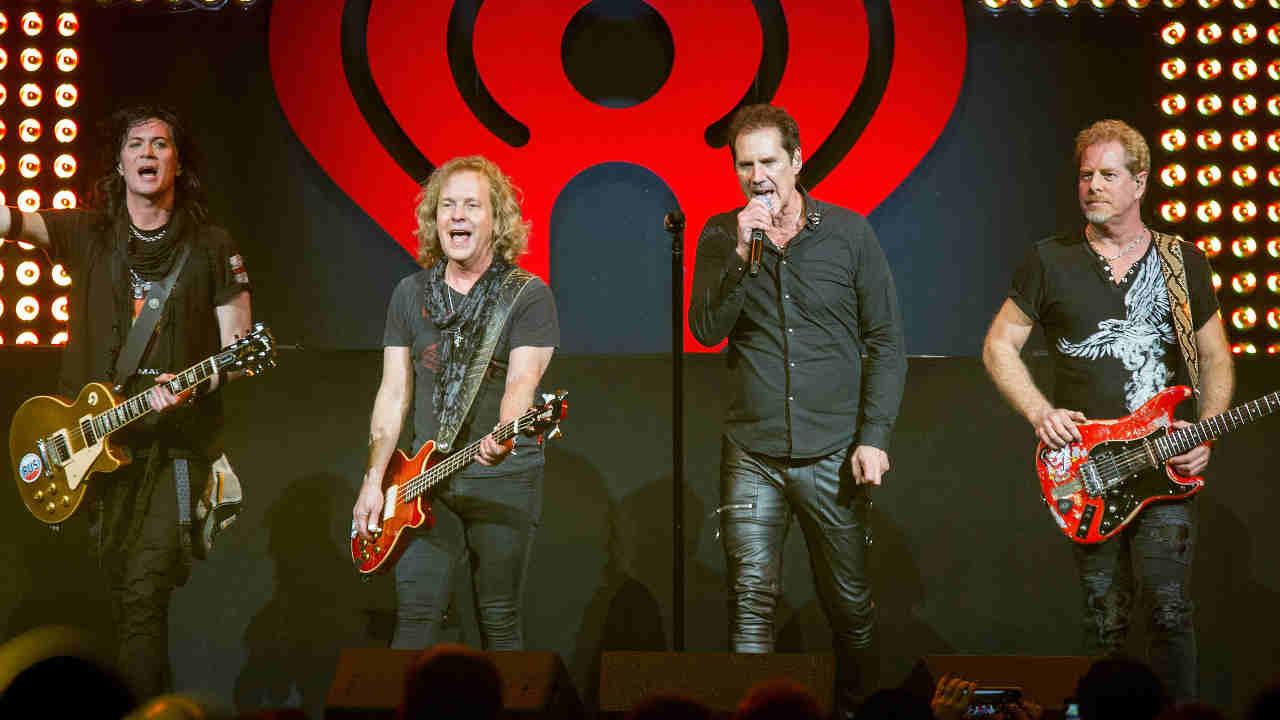
Says Blades: “I feel blessed to be in this band. And I’m excited that people still come out to see us. I’m happy that young people are coming out to see Night Ranger. Because of Guitar Hero and Rock Band, these young kids want to see what the real stuff is like.”
Night Ranger are living proof that you can still rock in America. And that’s something that makes Jack Blades very proud. “You know, Ted Nugent once told me: ‘I wish I’d written that song!’ The way he interpreted it, he’s like: ‘Let me stick my middle finger up to everybody in Russia and China and wherever – go fuck yourselves!’ I’m like: ‘Great, Ted, whatever you want to think!’ But that song is as true today as it was back then. These are tough times right now, but you can still rock in America! And that can mean rock as in rock’n’roll or rock as in kickin’ ass in your life.
“And maybe,” he laughs, “you can still rock in the UK. But I’ll be the judge of that!”
Originally published in Classic Rock Presents AOR issue 1
Freelance writer for Classic Rock since 2005, Paul Elliott has worked for leading music titles since 1985, including Sounds, Kerrang!, MOJO and Q. He is the author of several books including the first biography of Guns N’ Roses and the autobiography of bodyguard-to-the-stars Danny Francis. He has written liner notes for classic album reissues by artists such as Def Leppard, Thin Lizzy and Kiss, and currently works as content editor for Total Guitar. He lives in Bath - of which David Coverdale recently said: “How very Roman of you!”

